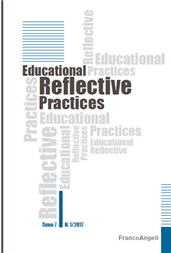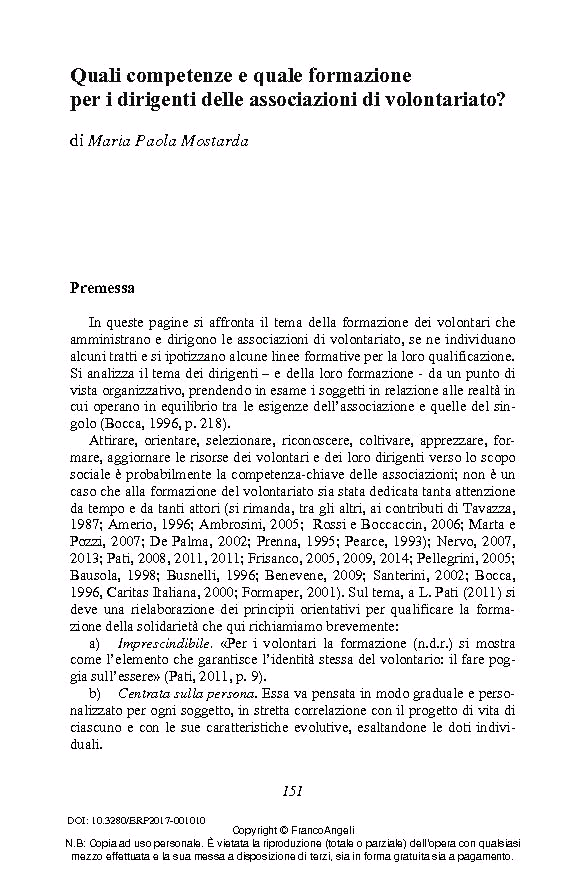Quali competenze e quale formazione per i dirigenti delle associazioni di volontariato?
151-165 p.
This article addresses the subject of training for democratically elected volunteers (and therefore not the paid managers or directors) who administer and manage associations. It identifies certain traits of these individuals and proposes educational guidelines for their training in light of Italian and international studies. In a field short on data and systematic research, this analysis acknowledges certain features of administrators: volunteerism, partial availability, freedom, support and auditing, vision; each one has specific pros and cons. Based on these characteristics, the following educational approaches are proposed: pedagogical training, which can be helpful in identifying areas to include in the managers' individual programs, recognizing the skills they possess and those upon which they can improve;.
sustainable training, in keeping with a volunteer who donates his or her time, reconciling it with his or her other commitments; specific training, in order to occupy this strategic role shifting between state, profit, and nonprofit with a full-fledged identity; multidisciplinary training, to support the array of skills needed in this role; cooperative training aiming at providing the management with the skills to interact with paid and non payed staff, with different nonprofit organizations and institutions; continuous and reflective training, to craft the ability to interpret change and redirect associations by viewing reality through new eyes.
Training shortcuts focused on managing for profit or institutional bureaucracy do not appear to contribute in volunteerism. This reshaped training offered for the governing boards opens the door to collaborative training opportunities among a wide range of training agencies committed to supporting volunteerism and to fully fulfilling this role, which is fundamental to democratic life and helps bind society together. [Publisher's Text].
Fa parte di
Educational reflective practices : 1, 2017-
Articoli dello stesso fascicolo (disponibili singolarmente)
-
Informazioni
Codice DOI: 10.3280/ERP2017-001010
ISSN: 2279-9605



